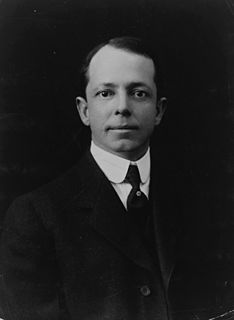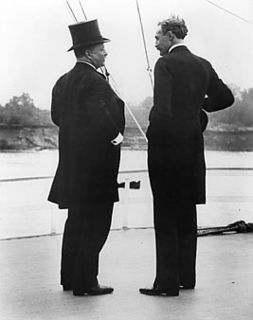
National Forest is a classification of protected and managed federal lands in the United States. National Forests are largely forest and woodland areas owned collectively by the American people through the federal government, and managed by the United States Forest Service, a division of the United States Department of Agriculture.
The All India Services (AIS) comprises Civil Services of India, namely the Indian Administrative Service (IAS), the Indian Forest Service (IFS) and the Indian Police Service (IPS). A common unique feature of the All India Services is that the members of these services are recruited by the Centre, but their services are placed under various State cadres, and they have the liability to serve both under the State and under the Centre. Due to the federal polity of the country, this is considered one of the tools that makes union government stronger than state governments. Officers of these three services comply to the All India Services Rules relating to pay, conduct, leave, various allowances etc.

Pisgah National Forest is a National Forest in the Appalachian Mountains of western North Carolina. It is administered by the United States Forest Service, part of the United States Department of Agriculture. The Pisgah National Forest is completely contained within the state of North Carolina. The forest is managed together with the other three North Carolina National Forests from common headquarters in Asheville, North Carolina. There are local ranger district offices located in Pisgah Forest, Mars Hill, and Nebo.

The Transfer Act of 1905 transferred the forest reserves of the United States from the Department of the Interior, General Land Office to the Department of Agriculture, Bureau of Forestry.
The following outline is provided as an overview of and guide to forestry:

Henry ("Harry") Solon Graves was a forest administrator in the United States. He co-founded the Yale Forest School in 1900, the oldest continuous forestry school in the United States. He was appointed Chief of the United States Forest Service in 1910 and served in this position until 1920.
The Maryland Forest Service in 1996 marked the 90th anniversary of forestry in Maryland, United States and the birth of what is known as the Department of Natural Resources Forest Service. Although the service has been known by many names over nine decades, its mission has been consistent: "To conserve and enhance the quality, quantity, productivity and biological diversity of the forest and tree resources of Maryland."

Forestry in India is a significant rural industry and a major environmental resource. India is one of the ten most forest-rich countries of the world along with Russia, Brazil, Canada, United States of America, China, Democratic Republic of the Congo, Australia, Indonesia and Sudan. Together, India and these countries account for 67 percent of total forest area of the world. India's forest cover grew at 0.20% annually over 1990-2000, and has grown at the rate of 0.7% per year over 2000-2010, after decades where forest degradation was a matter of serious concern.
The Virginia Department of Forestry (VDOF) was established in 1914 to prevent and suppress forest fires and reforest bare lands. Since its inception, the agency has grown and evolved to encompass other protection and management duties:
The Forest Service Organic Administration Act of 1897 provided the main statutory basis for the management of forest reserves in the United States, hence the commonly used term "Organic Act". The legislation's formal title is the Sundry Civil Appropriations Act of 1897, which was signed into law on June 4, 1897, by President William McKinley.
The Cooperative Funds Act is a United States law, or series of laws, which authorized the United States Forest Service (FS) to collect donations from private partners to perform FS work. Contributions had to be voluntary, and by cash, check, or money order only. It was also stipulated that there could be no conflict of interest between the donor and the FS.

Starting in 1876, and undergoing a series of name changes, the U.S. Forest Service grew to protect and utilize millions of acres of forest on public land. Gifford Pinchot, an early advocate of scientific forestry, along with President Theodore Roosevelt and conservation organizations, led the effort to manage forest for the public good.
The Forestland Enhancement Program (FLEP) was adopted in the 2002 farm bill as an amendment to the Cooperative Forestry Assistance Act of 1978. FLEP replaces the Stewardship Incentives Program (SIP) and the Forestry Incentives Program (FIP). FLEP is optional in each state and is a voluntary program for non-industrial private forest (NIPF) landowners. It provides for technical, educational, and cost-share assistance to promote sustainability of the NIPF forests. The law provided FLEP with $100 million from the CCC through FY07. Half of these funds were diverted to wildfire control in 2003, and $40 million of those funds have not been replenished and the spending authority has been cancelled.
The North Carolina Forest Service, formerly known as the North Carolina Division of Forest Resources is a North Carolina state government agency responsible for providing land management assistance to landowners. The agencies priority responsibility is for wildland fire control on all state and privately owned land in North Carolina, United States. The Service was a Division of the N.C. Department of Environment and Natural Resources until July 2011 and is now part of the North Carolina Department of Agriculture and Consumer Services.
The Colorado State Forest Service (CSFS) is the forest service agency for the U.S. state of Colorado. It is modeled after the United States Forest Service. Their goal is "providing timely, relevant forestry information and education to Colorado citizens."
Private Forests Tasmania is a Tasmanian government statutory authority established in 1994 by the Tasmanian Private Forests Act 1994. The Authority was created to provide assistance and advice on private forest management in Tasmania, Australia. The objectives of the authority are to facilitate and expand the development of the private forest resource in Tasmania, in a manner that is consistent with sound forest land management practices.








